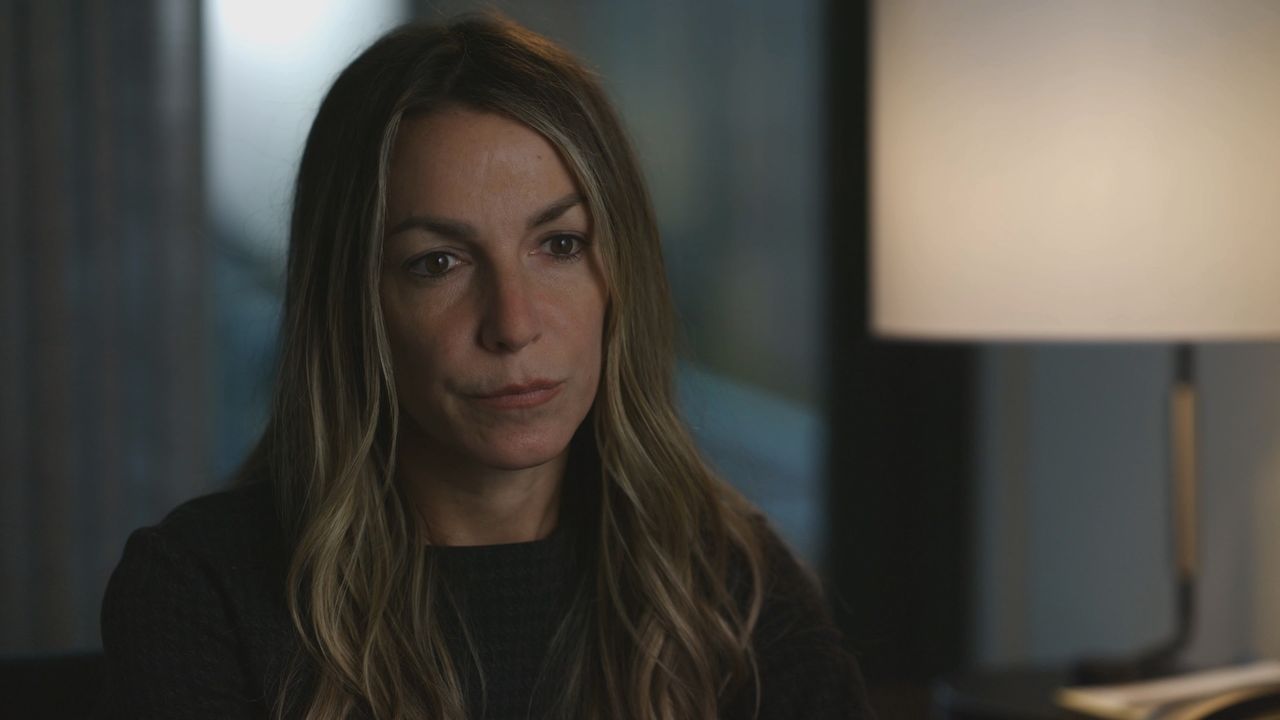The immediacy of Read’s case was irresistible. “So many times we’re telling stories in past tense and doing reenactments, and in this case, we didn’t
The immediacy of Read’s case was irresistible. “So many times we’re telling stories in past tense and doing reenactments, and in this case, we didn’t know what was going to happen from day to day,” says Meurer. “It was a challenge, but also very exhilarating.” Plus, the story felt right in her wheelhouse. “I still don’t know if we’re ever going to really know what happened at 34 Fairview that night. It was a mystery—and my career shows I love mysteries.”
Production was rapid and furious. “We had one Zoom call, and then a month later, we were boots on the ground in Boston,” says Meurer, whose team attended nearly every day of the nine-week trial, alongside “the Pinks”—a group of Read diehards dressed in her favorite color, some of whom Meurer says had traveled from around the globe for the trial.
Did Read, when granting this level of access, come with any stipulations? “I explained to them: We have to tell both sides of the story, because you can’t talk about the defense without knowing what they’re defending against,” says the documentarian. “Very early on, one of the first conversations I had with Karen, I said, ‘All right, tell me all the players that are involved in this case. But I want both sides—all the people that are your supporters who you feel we should interview, and then all the people who are not your supporters who will tell the other side of the case.’ She gave us a list for both sides, and so we pursued both.”
But Read’s legal team probably assumed that Meurer would be capturing Read’s journey toward freedom—not a fleeting reprieve on the way to a second trial. “I 100% believe that they thought there was going to be an acquittal in this case,” Meurer says. “So when they took this on, that’s what they were thinking. And it would be a different film if that had happened. Everyone was surprised that it was a hung jury.”
When a mistrial was declared on July 1, 2024, Meurer said, “We needed to make sure we were 100% as balanced as we could be, because we knew there was going to be another trial.”
In an effort to balance the scales, Meurer contacted the O’Keefe family, whom she says were unable to participate because of an exclusive agreement with another production company. (VF previously confirmed that an unscripted project on the case is in the works at Netflix.)
The O’Keefes previously declined to answer questions from VF, but sent a statement declaring that the family believes Read “is liable for John O’Keefe’s death. Unlike most people accused of murder and sued for wrongful death, Karen Read has embraced her celebrity in outsized ways.” (Last November, a judge ruled that Read will not be deposed in a civil wrongful death lawsuit filed by O’Keefe’s family until after her second criminal trial concludes.)
In response to claims that she’s relishing her notoriety, Read told VF, “Anyone in my position who’s being falsely accused would be shouting from the rooftops. But if you think for a second that anyone has fought harder to find the truth about what happened to John and to enlighten everyone about what happened to John harder than me, you’re wrong.”

COMMENTS